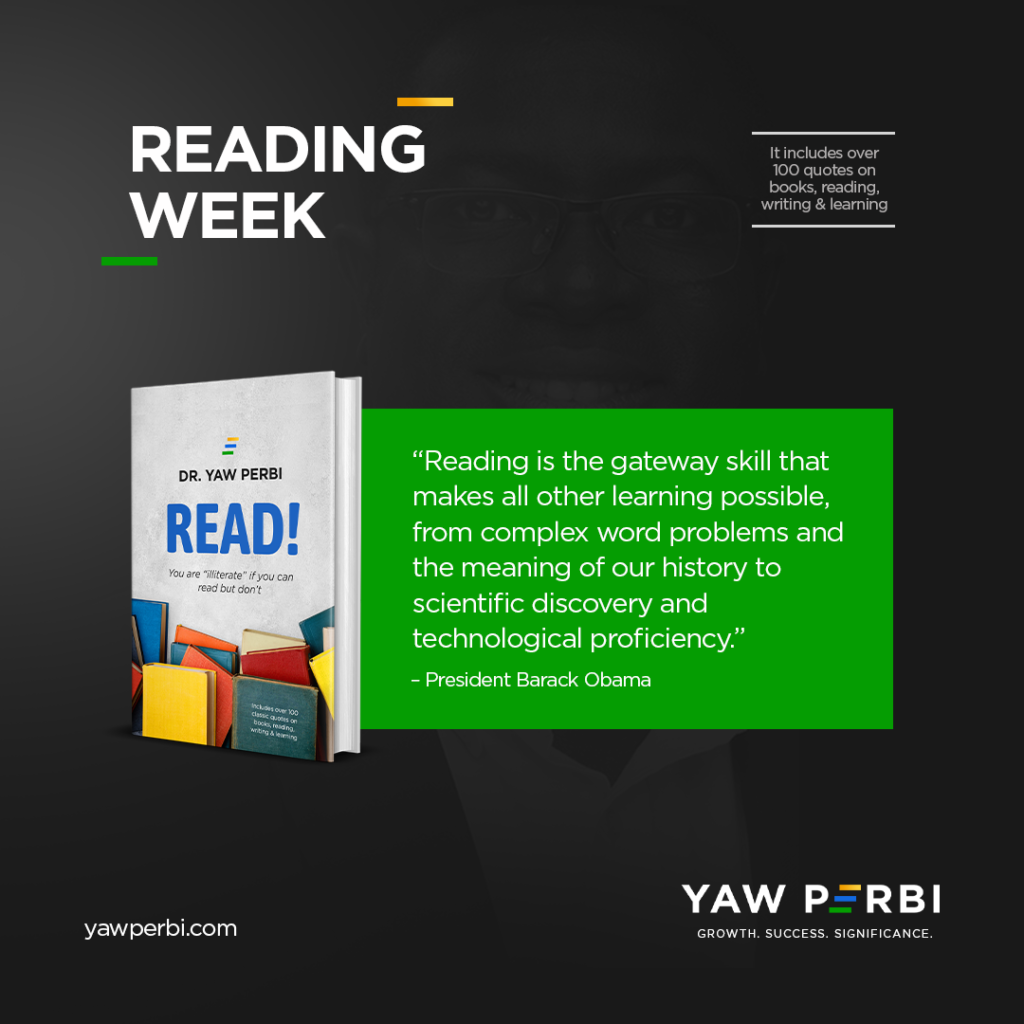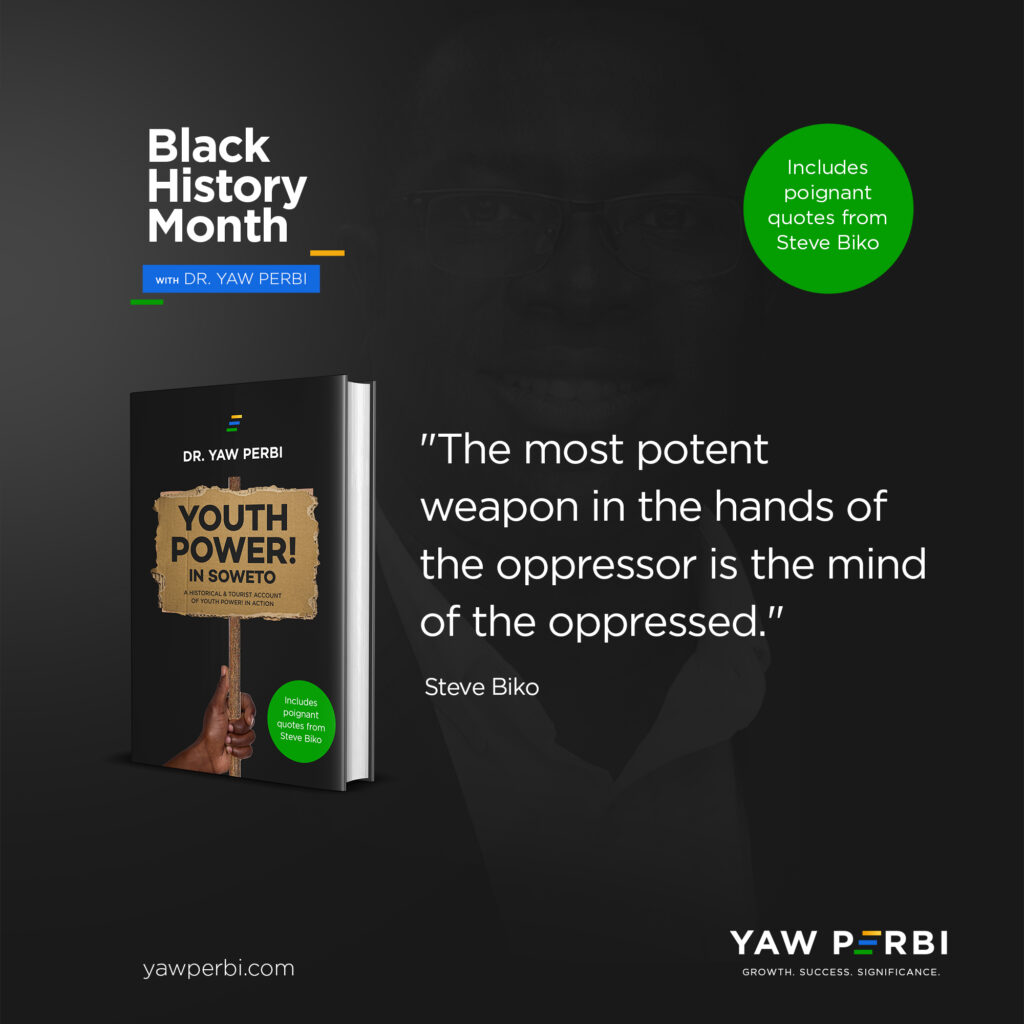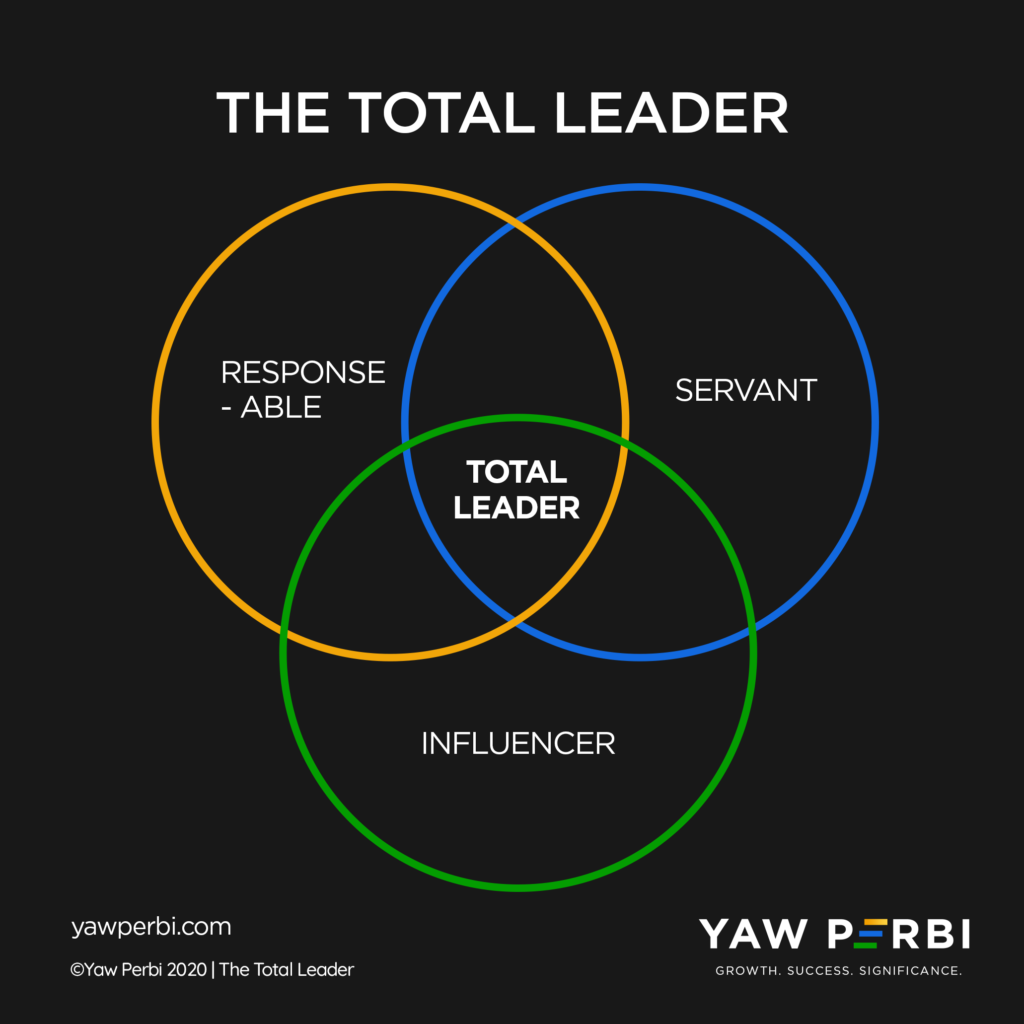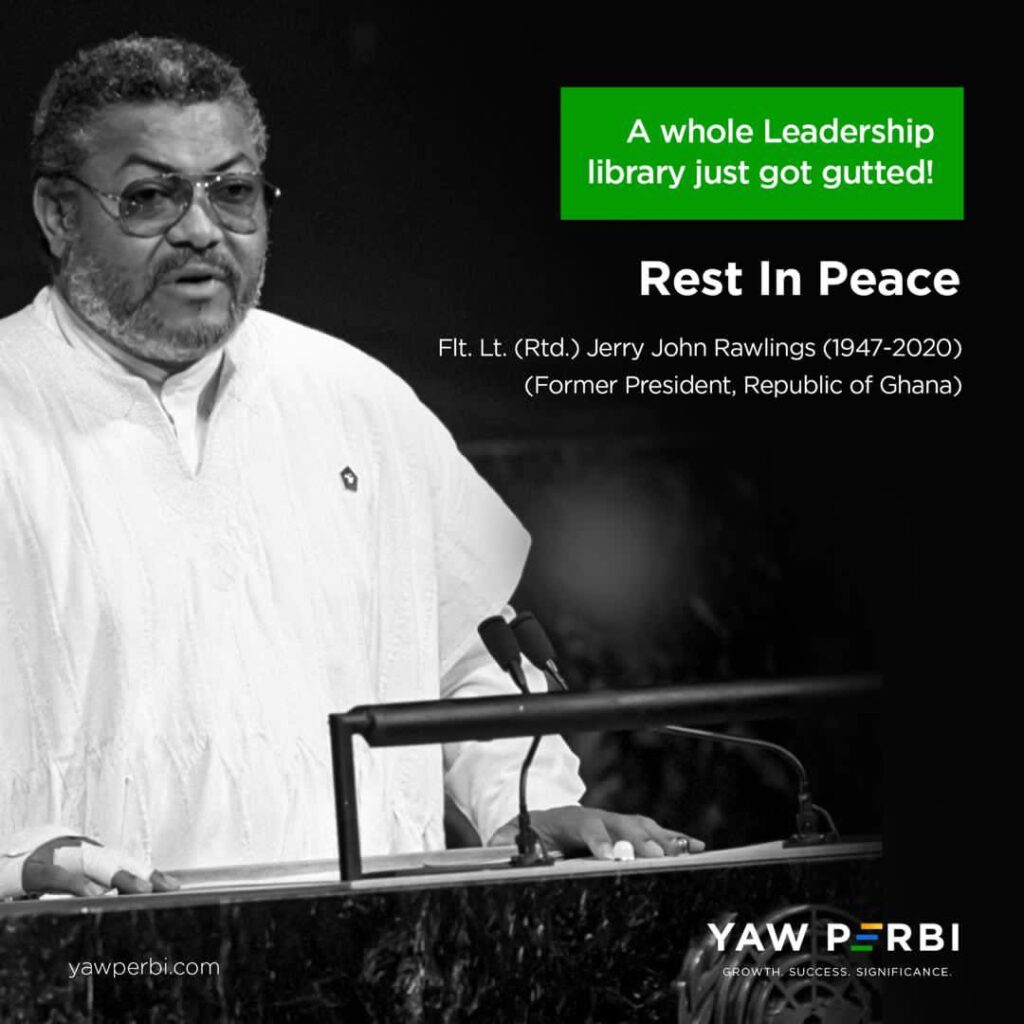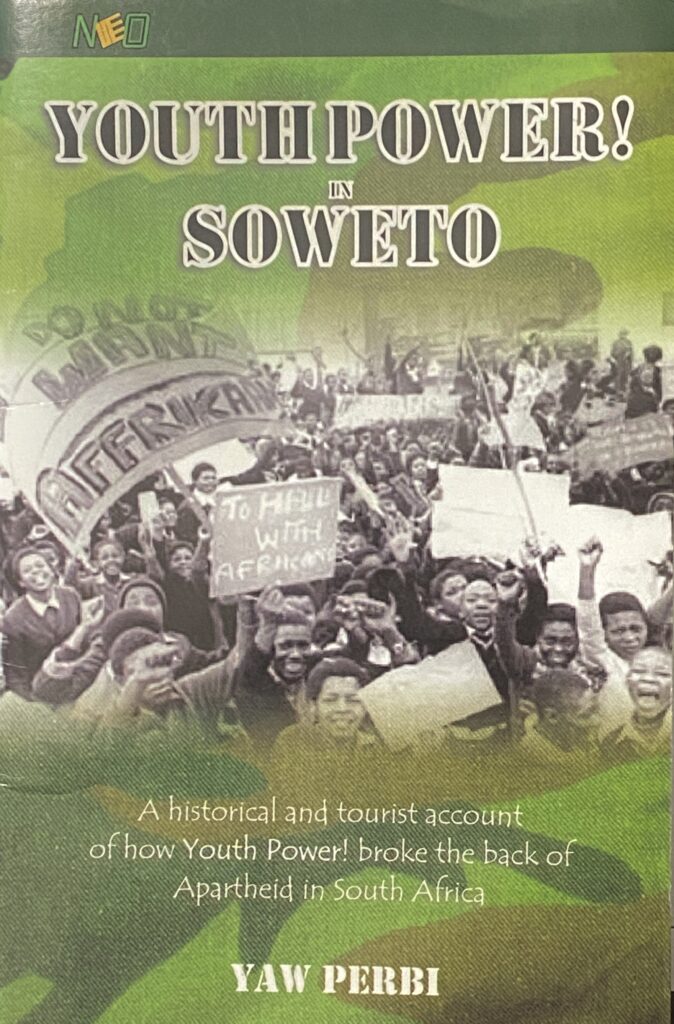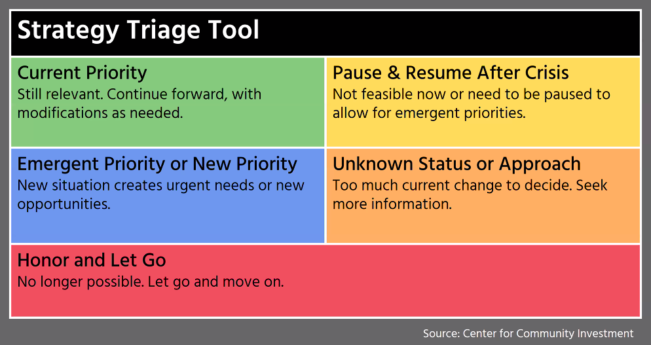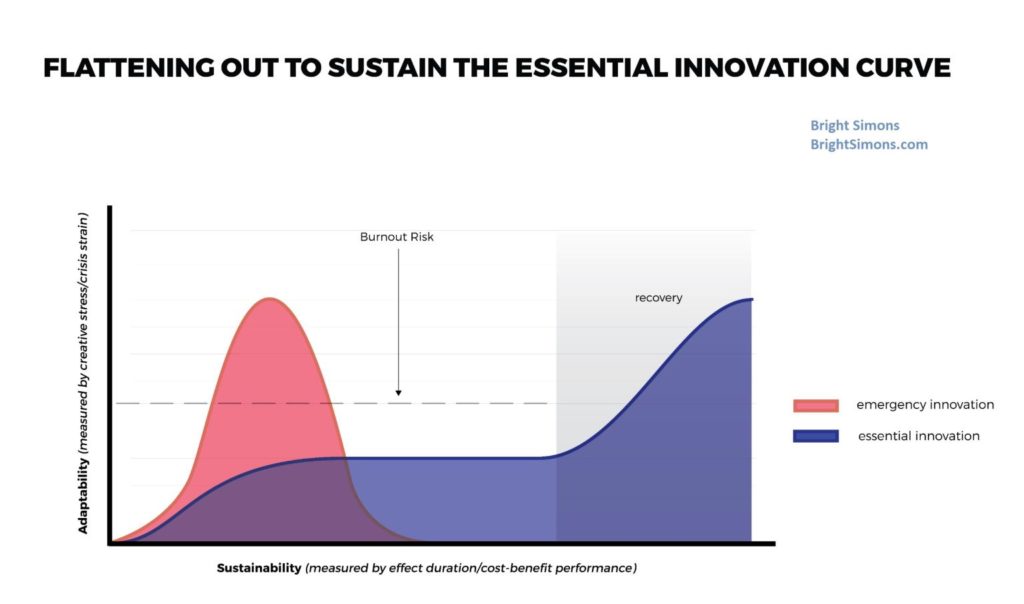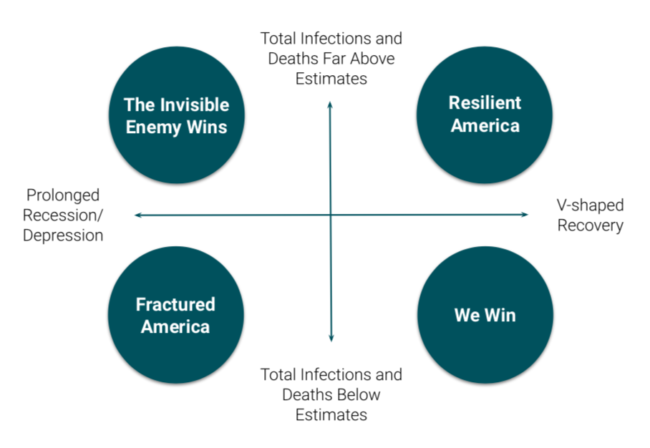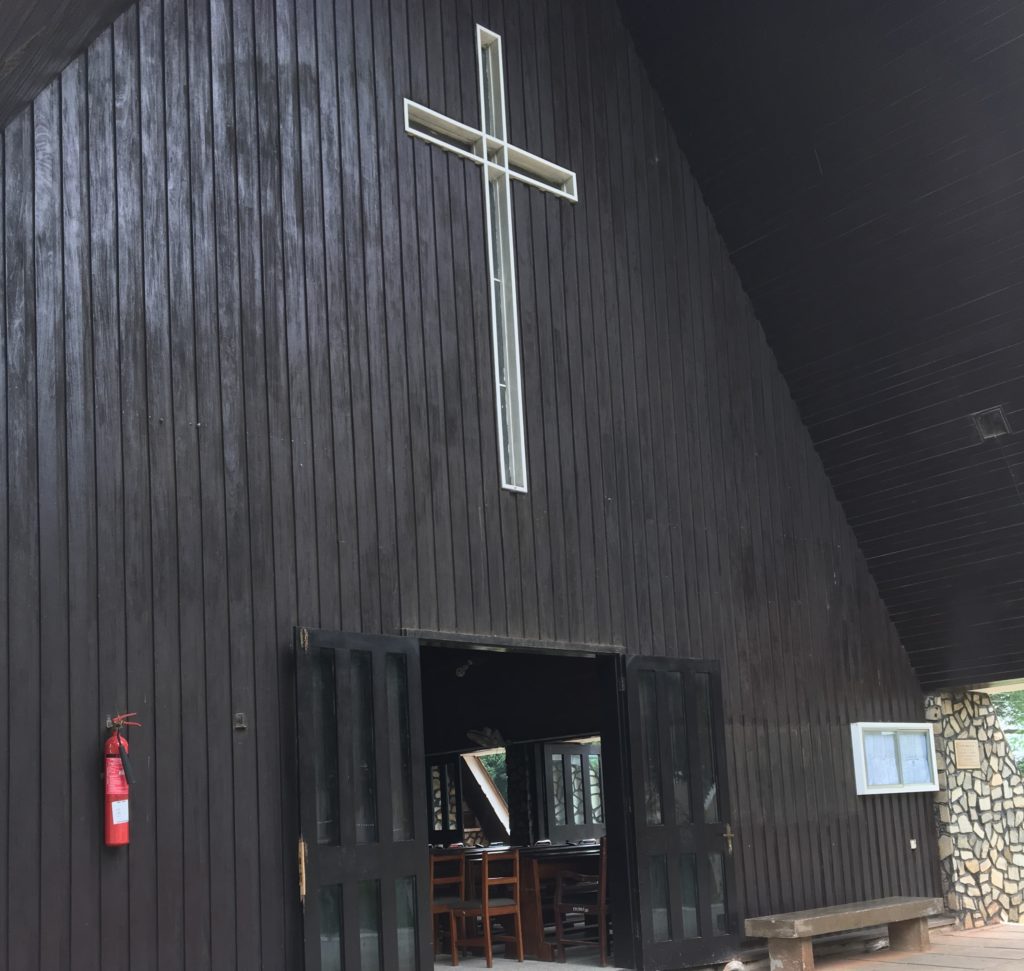
Everything Rises and Falls on Family.
My mentor likes to say, “Everything rises and falls on leadership.” This is true but there is something even more fundamental that all leadership itself rises and falls on. I say, everything rises and falls on family first. At least five reasons come to mind why:
1. CREATOR PERSPECTIVE | God is Family
“In the beginning, God…” That’s how the entire holy scriptures begin in Genesis 1:1. I have a theistic worldview as a bonafide African, and a Biblical one at that as an African Christian. My understanding is that everything is created by a Supreme God and that He created human beings in His image and likeness. That tickles my theological senses a lot because according to the Christian view, GOD IS FAMILY. At the centre of the universe is family–Father-Son-Spirit. At the core of cosmos is a love, relationship–Love, Lover and Love itself. Everything rises and falls on love, everything rises and falls on God, everything rises and falls on family.
Of course we could go into how God created the first family after declaring “it is not good for man to be alone,” how throughout scripture and history God chooses a person and their family to work through, the many scriptures that seek to protect, preserve and promote family etc. Even when God decided to wrap Himself in human flesh and move into our human neighbourhood in the person of Jesus Christ, he chose to implant himself in a family–Mary and Joseph’s. Everything rises and falls on family.
2. CRADLE PERSPECTIVE | Parents shape world shakers
Have you ever heard the proverb, “The hand that rocks the cradle rules the world”? That is 1865 wisdom unleashed on the world through the refrain of a William Ross Wallace poem that praises parenthood as the preeminent force for change in the world (see here). Of course, at the time it was written, nearly two centuries ago, the work of raising children was mainly seen as the role of the mother but we know all too well it takes two to tango. Both father and mother have a role in rocking the cradle, even procuring that cradle in the first place. Parents and the wider family, shape the people who would shake and move the world, for good or ill. These two PhDs Barbara Riggs and Cynthia Tweedell don’t mince words in their Marriage and Family textbook: “The strongest influence in your life will stem from family.” Period. Everything rises and falls on family.
3. CELLULAR PERSPECTIVE | Family is the unit of humanity
So yes, “it is the hand the rocks the cradle that is the hand that rules the world” but alas! today, everyone wants to change the world; no one wants to start at home. The irony! Not only does everything rise and fall on family because the hand that rocks the cradle rules the world but also the family is the basic unit of society just as the cell is the basic unit of biological life or the atom is for all matter. Yet somehow we think we can flourish in the corporate world, government and such without adequately addressing the lowest common denominator!
If you think one cell gone bonkers is no big deal think again about cancer. That’s all it is. Cells gone bonkers, multiplying unhealthily–and eventually spreading that craziness (metastasis). Sooner or later a whole monarch or president or parent dies, all because of a cell gone awry. Everything rises and falls on family, that one cell.
4. CALCULATION PERSPECTIVE | Hindsight is 20/20
Today’s C-level executive claims “It’s not the quantity of time but quality that I spend with my family that matters.” This is a fallacy. Family costs what it costs and it doesn’t go on sale! The question is if we are willing to pay the price.
Even for the richest and most popular of leaders, when they assess their lives, doing a calculation of all they’ve spent their talents and energies, time and finances on, the truth remains that, “There’s no one who on their deathbed has been heard to say, “I wish I had spent more time at work.”” What folks should’ve known first, they only find out last: Everything rises and falls on family.
5. COVID-19 PERSPECTIVE | The only place to be/go has been home.
When our all-important selves on our all-important endeavours were brought to a screeching halt by the latest Coronavirus pandemic, where did we all head? Home! When literally every economy and society locked down, where did we stay put and be safe: with family! I’ve never seen so many advertisements on primetime television asking people to stay home in my life! Heroes, according to the World Health Organization, stay home! Ha! Who would’ve thought that day would ever come!
Even high-flying pilots have been grounded, literally, at home. I haven’t flown in a year–that is crazy considering that there were times in the last few years when I did as many as 70 flights in the year! My VIP airport lounge passes and platinum airline and hotel statuses have been rendered useless. The only thing that has mattered most has been the people many of us paid the least attention to prior to COVID-19: family. Of course, some families have turned at each other and self-destructed because of the very forced proximity that should’ve been a blessing!
Crucibles reveal what’s most important. After this pandemic is over, we would need insignia to remind us, lest we forget, everything rises and falls on family.
THE MILLION DOLLAR QUESTION
So why then do many, too many, in our generation tend to put family on the backburner? What if we all invested in our families the same degree of seriousness we put into our professions or in climbing the corporate ladder? I’ve been amazed at how many C-level executives are executing vision and mission statements and strategic foci for their organizations but have not given a thought to forging a simple family mission statement yet alone execute it.
Granted, some people really want to give their families their best shot but they just don’t know how or don’t have the tools to. Since Anyele and I welcomed our seventh child into the world, we’ve had so many puzzles and questions thrown our way that we’ve decided to hold a free online session from time to time for various folks to share our hearts, heads (ideas) and hands-on stuff (skills) about family, theirs and ours! Would you believe after our first 2021 15 Laws of Growth Mastermind through January and February the one thing that made all these participating professionals vote for an extra/bonus Mastermind session, which I obliged to facilitate for free, was family?
In one of the quarters of each year, my coaching company will run a 60-day journey through powerful principles of family foundations in a paid mastermind group for healthy family growth, based on ancient wisdom, current family systems theory and practical tools that work! This will be targeted at C-level executives comprising weekly 90-minute online sessions for eight weeks with lots of readings, video clips, assignments, inspiration, encouragement and accountability throughout the weeks! Each week, a unique practical skill will be learnt to better our relationships.
Family: everyone has one–no matter how dysfunctional or atypical. Even if we don’t form one of our own (family of procreation), everyone comes from one (family of orientation) that we didn’t choose. I confess that being a very goal-oriented, high achiever myself, I never thought the day would come when I would see and treat family with the sort of ‘first placeness’, centrality and reverence I have for it today. Perhaps if others also had a paradigm shift that everything rises and falls on family, everything would change too.
What do you think?

I Used Not To Like Reading. Two Statements Changed Everything.
I wouldn’t be where I am today but for books. I mean precious books like the Holy Bible (which I’ve read cover-to-cover about 10 times), Rich Dad Poor Dad (Robert Kiyosaki), The 7 Habits of Highly Effective People (Stephen Covey), The Purpose-Driven Life (Rick Warren), Before You Say I Do (Yaw Boamah), The 21 Irrefutable Laws of Leadership (John Maxwell), The E-Myth (Michael Gerber), The Prayer of Jabez (Bruce Wilkinson), Create Your Own Future (Brian Tracy), The Emotionally Healthy Leader (Peter Scazzero) etc. My life five years ago is totally different from my life now—and so was my life five years prior to that totally different—just because of the books I’ve read.
Consequently, for a decade-and-a-half now I’ve been a serious reading campaigner. Now, not only have I grown further fierce in campaigning for people to love reading, my wife and I have stepped up by stepping down. What I mean by that is, we’ve enhanced our campaign but decided to go further down to the age where humans are most pliable: childhood. And we began with our own seven children. This is the philosophy behind Perbi Cubs Library Services. You may find the story behind Perbi Cubs here.
But being a reading enthusiast, let alone champion, hasn’t always been so. I used not to like reading, at all! Then two statements hit me hard and totally shifted my paradigm, absolutely altering my way of thinking.
THE ‘RACIST’ & ‘TREMENDOUS’ STATEMENTS THAT CHANGED EVERYTHING
The first statement, I randomly encountered on the internet. I was but a youth then. As I confess in my book READ!, “I was so angry my intestines could have gushed out. If I were light skinned my face would’ve turned tomato-red instantaneously. Yet deep, very deep down my heart I knew there was a truth in this almost racist statement glaring at me from the computer screen.” This is what it said: “THE BEST WAY TO HIDE SOMETHING FROM BLACK PEOPLE IS TO PUT IT IN A BOOK!” Ah! Upsetting! Yet in many ways this is true, I’m ashamed to admit: We don’t read!
The other paradigm-knocking statement was Charlie ‘Tremendous’ Jones’ rather prophetic pronouncement: “You will be in five years where you are today except for the people you meet and the books you read.”
These two statements turned my life around to not only become a voracious reader and prolific writer, but an advocate of the same!
WHAT IS READING?
We all have read (or even still reading even right now) academic or technical texts to pass an exam or for promotion, for professional growth etc. That is not what I mean by my read campaign. When I speak of reading I mean leisure reading. Also known as “recreational reading, pleasure reading, free voluntary reading, and independent reading,” it is “independent, self-selected reading of a continuous text for a wide range of personal and social purposes. It can take place in and out of school, at any time” (International Reading Association).
Samuel Johnson shares the following sentiments: “A man ought to read just as inclination leads him; for what he reads as a task will do him little good.” I get him. Leisure reading must be voluntary and pleasurable–not just a chore–if it is to benefit us maximally.
WHY MANY ARE SCHOOLED BUT STILL “ILLITERATE”
Several of us who have learnt “ABCD…” and can practically function simply do not read. In my book READ!, first published in 2005, here’s my thesis: If you know how to read and you don’t, you are no different from the illiterate! The bottom line is the same: you both don’t read! That’s why the subtitle of the book is “You are an “illiterate” if you can read but don’t.” Many years ago Mark Twain put the same idea this way: “The man who does not read good books has no advantage over the man who cannot read them.”
CONCLUSION
If it’s any comfort to you, a guy who used not to like reading today reads several books at the same time! Even further, I’ve acquired this new habit of writing several books at the same time too! Something you need for your future to happen is hidden in a book near you. As they say at Perbi Cubs, “success is just a book away.” And it’s true. If you don’t believe Perbi Cubs or Charlie ‘T’ Jones, take it from me.
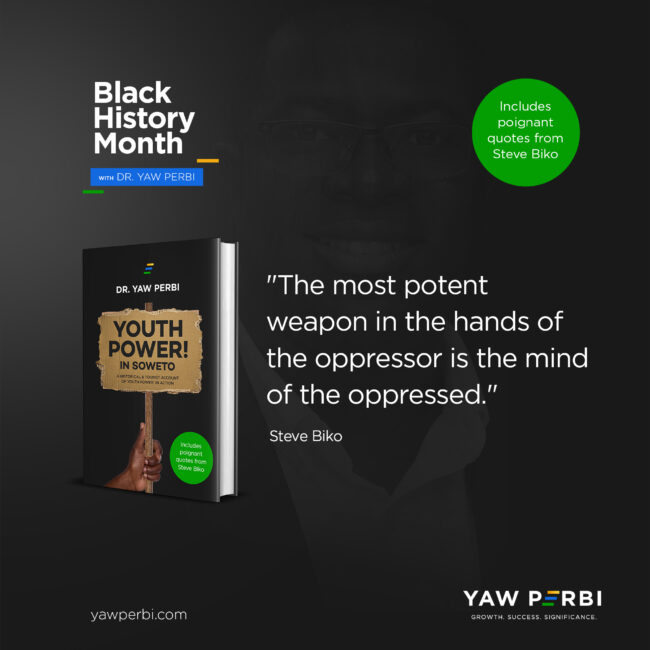
Black History Month | Why the Protests of 2020 Had a Sense Déjà Vu About Them
Here is the entire preface to the 2020 version of YouthPower! in Soweto for your enjoyment and edification. This book was first written 15 years ago upon a life-transforming visit to South Africa in 2005. The anti-racial protests in 2020 were like a 1976 déjà vu and inspired me to get this re-release going for today’s generation to remember and soldier on.
“It is better to die for an idea that will live,
than to live for an idea that will die.”
Steve Biko
The Definition of Black Consciousness, I Write What I Like, 1978
It is 2020. The pandemic year. The epochal events of this year, on both sides of the Atlantic, have had such significant parallels with the youth uprisings and protests in apartheid South Africa in 1976 that after procrastinating the republishing of this book for years I finally got the umph to do it.
“Police brutality.” “Systematic racism.” “Peaceful protests turned violent.” “We are dealing here not with a spontaneous outburst but with a deliberate attempt to bring about polarisation between whites and blacks.” “This government will not be intimidated and instructions have been given to maintain law and order at all costs.” Do any of these phrases and sentences sound familiar? Yet these are not from 2020; these are all 1976 words and phrases!
With the world slowed down, even locked down, we all had the time and bandwidth to take in the slow slaughter of an American young man, George Floyd, by those paid “to serve and protect” him. The aftermath of #BlackLivesMatter protests in the United States and around the world seemed like a coordinated tsunami. Perhaps no other year has there been more concerted protests against police brutality, systematic racism and no-nonsense towards anything or anyone glorifying an apartheid, segregationist, slavery or colonial past.
At a point, the confluence of 400th year anniversary of the first slave setting foot in America, a plague (COVID-19) and protests by the oppressed made me wonder if this was not a modern replay of the biblical Exodus, the liberation of Israel from Egypt.
Then just when things seemed to be settling down, #endSARS happened. Nigerian youth wouldn’t take the brutalization of their kith and kin anymore either. The well-organized air war (via social media) and on-the-ground protests did result in the dissolution of the notorious Special Anti-Robbery Squad (SARS) that had been unleashing untold mayhem on the Nigerian people, especially youth, for years. Some paid the ultimate price for daring to express their Youth Power! May they rest in peace. May their death bring life.
In all the standing up to, shouting out and marching against, the core demographic has of course been Young People. Youth Power! at work again; just as in 1976. In fact, my favourite picture of the 2020 protests in the U.S. so strongly correlates with a scene from 1976 although both events are seas and decades apart. On the streets of America in 2020 the youth held placards that read, “We are not our ancestors. We will fuck you up.” In Soweto, 44 years earlier, the youth had asserted similarly, “Our parents are prepared to suffer under the white man’s rule. They have been living for years under these laws and they have become immune to them. But we strongly refuse to swallow an education that is designed to make us slaves in the country of our birth.”
It seems to me that like the Boomer generation of 1976, the Millennial, Gen Y and Gen Z generations alive and kicking in 2020 have also taken seriously their mandate to leave the world better than they found it. “You see things; and you say “Why?” But I dream things that never were; and I say “Why not?”” [said a certain wise man]. I believe that was the Youth Power! mindset in 1976, replayed in 2020. Here’s to celebrating Youth Power! from Soweto to Minneapolis to Lagos to the ends of the earth.
POST SCRIPT
I am humbled by my very rich family history of Black story-telling. My grandfather, J.H. Kwabena Nketia, was an emeritus professor of ethnomusicology whose lifework was dedicated to documenting the songs and drum language of African peoples while my mother, Akosua Adoma Perbi, is a professor of history with a specialization in the slave trade, indigenous and trans-Atlantic. It seems my turn has come to continue a family tradition.
I can understand those in my generation who feel Black people are too yesterday-focused and are pushing for this month to be Black Future Month instead of Black History Month. A word of caution though: we must know our history well–although not dwell in the past–if we are to be and do today what will make our tomorrow better than yesterday. As a wise man once said, “Those who do not learn history are doomed to repeat it.” 2020 has proven that history tends to repeat itself.

American Shitocracy and African Shitholes
‘Shit hole’ status is not the preserve of any people group, state or nation. Seasons change. Kingdoms rise and fall with terrific and terrible leadership respectively. Great civilizations have come and gone. If Africa continues on a trajectory of principle-centred, values-based, effectual leadership and America continues on her trajectory of shit-based leadership for long enough the tables will turn!

“I’ll be watching because history is going to be made,” were Trump’s inspirational words to ginger his soon-to-be-desecrating supporters who forced their way into the Capitol to interrupt the democratic transfer of power. Photo credit: Roberto Schmidt/Agence France-Presse — Getty Images
Bit by bit we’ve seen the shroud of so-called American exceptionalism come apart. Rent piece by piece, she’s revealing her warts to a watching world, stuck at home. What she’s done well for over 200 years to conceal—and not wash her dirty linen in public either—a combination of democratized social media, a TRUMPeting emperor with no clothes and a plaguing pandemic have conspired to expose. Lynchings like George Floyd’s are not new; it’s the handy smart phones and social media apps at the finger tips that capture and broadcast these which are.
Last Wednesday’s attempted coup d’état at the U.S. Capitol was the nadir of the last four years’ declivitous decline from apparent democracy to real shitocracy. I am not one to use the s-word; I’m only playing on the words of the supposed most powerful man on earth. Many aspects of the attack on the ‘people’s house’ by armed rioters a.k.a. domestic terrorists dropped my jaws (and kept my mouth agape) but the most shocking was literally the filthiest of all: desecration of the House with faecal matter, well-known in ‘shit hole countries’ as ‘shit bombing’. Just when you thought America could sink no further.
The shit-hole-country-conferring president of the Divided States of America inspired this group of shit bombers.
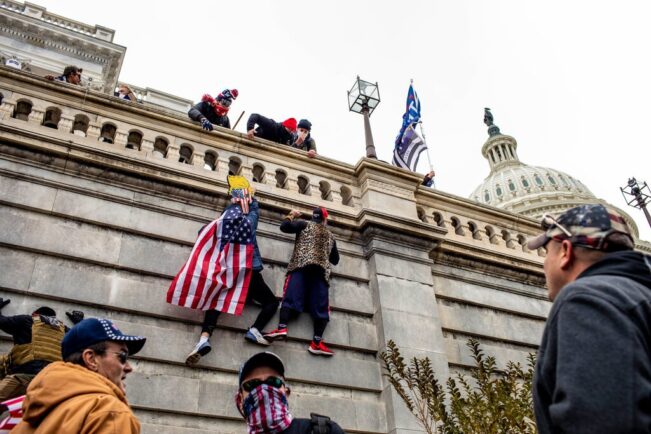
Thieves of democracy scaling walls like thieves do, as in the words of the New York Times, “largely unimpeded by police as they stormed the Capitol.” Photo credit: Jason Andrew for The New York Times
Let me tell America(ns) how we, Africans, got shit holed: LEADERSHIP! A long string of shit hole leadership like you’ve now gotten in the Black House (it’s only painted white and so-called but we know it was built by Blacks). If Africa continues on a trajectory of principle-centred, values-based, effectual leadership and America continues on her trajectory of shit-based leadership for long enough the tables will turn! You know how I know? Because “everything rises and falls on leadership,” E-V-E-R-Y-T-H-I-NG, shit and all. And that is a principle; a timeless, fundamental law of the universe that is no respecter of persons: red or yellow, black or white.
‘Shit hole’ status is not the preserve of any people group, state or nation. Seasons change. Kingdoms rise and fall with terrible and terrific leadership respectively. Great civilizations have come and gone. And I mean, greater civilizations than America, and that dominated for much longer than the toddling USA. America could be tomorrow what we call “ancient Egypt” today. Or even the beggarly Greece today, yes, Socrates, Aristotle and Plato’s Greece of yestercentury. In the last decade Portugal found itself borrowing money from her former colony Angola.
Meanwhile, my Ghanaian-Canadian children today wonder what is so ‘Great’ about Britain. Brexit? As for America, in the last few weeks we’ve spent more time at our Family Altar repeatedly praying for political peace in America and for the eradication of ignorance and disease (COVID-19) there than we have prayed about any of these for Africa!
Now to my fellow Africans. In the light of how backward America has proven to be recently, perhaps it is beginning to dawn on you that we may not be as backward as they (and some others) would like us to think! After all, when our ancestors were building pyramids their European forebears were but Barbarians (note: barbarian or barbaric is still not a fluttering word in the English dictionary today).
At the very time when there were prolonged pre, para and post electoral tensions in America, even with a sitting president refusing to concede but rather raising false alarms of a rigged election, Ghana figuratively and literally came from behind to vote, certify results within 72 hours and has already sworn-in a new president (an occasion the American president nominated American officials to attend). Now, look who’s shit hole!
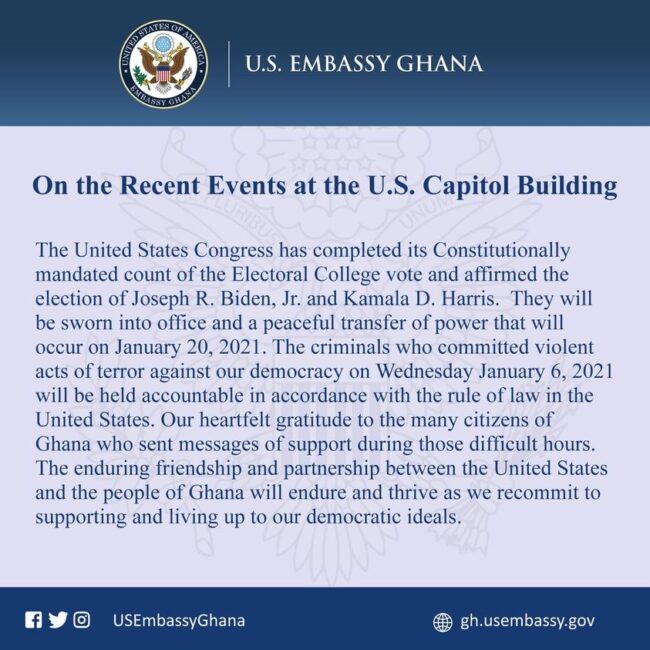
No one would’ve imagine such a notice from the U.S. Embassy in Ghana four years ago! “Our heartfelt gratitude to the many citizens of Ghana who sent messages of support during those difficult hours”? Wow!
Which is worse: being called shit hole or being shitty? It was America’s shitocracy that christened African countries as shit hole. But neither shitocracy nor shit hole is good enough for Africa or America. I have substantial interest in the prosperity of both peoples on both sides of the Atlantic–and so does the whole world stand to benefit. So upward and onward with godly, principle-centred, values-based, effectual leadership for the benefit of our peoples and to the glory of God. No more shit–shit holing, shit hollering or shit bombing. We were made for so much more than this.
Africa! America! African-Americans, arise, clean up and shine! Let our worst years be the last four; and our worst days among the last four too.
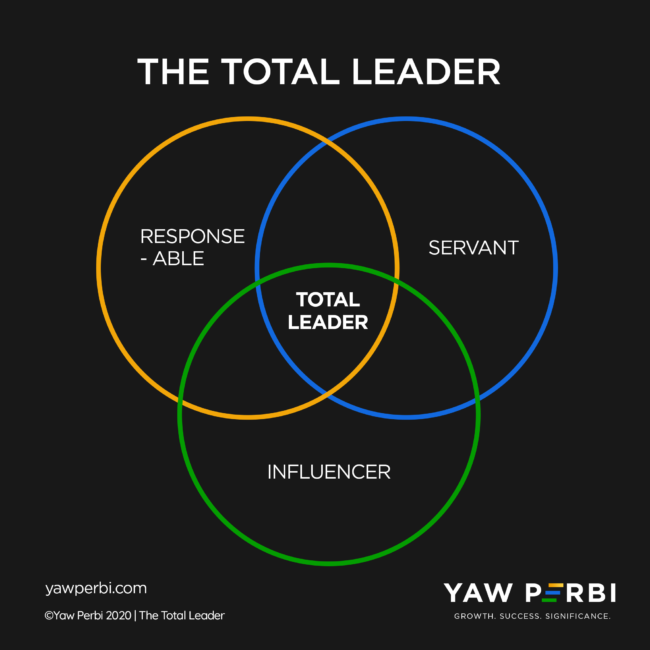
All these politicians are falling over themselves just to SERVE us?
I doubt it. I am skeptical that all these politicians are falling over themselves just to serve us, we the people. After a couple of decades of being a student of leadership, including a Masters in Global Leadership, I came to this simplicity at the far end of complexity that leadership is basically response-ability, service and influence. A total leader is and does all three. But even service has different degrees.
A few years ago some people were very cross with me after I mentioned on a live television interview on Good Evening Ghana that the then Ghanaian president wasn’t much of a leader (in terms of influence). He was very response-able, no doubt. I knew that quite well personally since we used to live in the same residential area and attended the same church. The honourable gentleman was a great servant as well–even as vice-president he was still volunteering to do such ‘menial’ tasks in the community. Such a role model in humility. But his charisma and ability to make things happen in and through others (influence) left much to be desired.
Of course there are those who are great public influencers but can’t even be response-able in their own marriage or toward their children. Such incomplete leaders are asked by the lawyer-turned-preacher, Paul, in the ancient texts, not to vie for leadership in the church. Here is the rhetorical question the trained lawyer poses: “for if someone does not know how to manage his own household, how will he care for God’s church?” A total leader is response-able, serves and influences. Now a focus on servanthood.
SERVANT-LEADER TAUTOLOGY
Ideally, the term ‘servant-leader’ should’ve been tautological as a leader necessarily must be one who serves. Unfortunately, more often than not, it isn’t so. Leadership is often anything but service. In fact, leadership is so much more synonymous with influence that when Robert Greenleaf introduced the term servant-leader around 1970 he literally mean servant-influencer. Here’s what he says in his The Servant as Leader essay back then:
The servant-leader is servant first. One wants to serve first; then one aspires to lead [influence]. This is sharply different from one who is leader [influencer] first, perhaps because of the need to assuage an unusual power drive or to acquire material possessions. A servant-leader focuses primarily on the growth and well-being of people and the communities to which they belong. The servant-leader shares power, puts the needs of others first, and helps people develop and perform as highly as possible.
THE MYSTERY OF MINISTERS
On a recent Lions Inspire Cubs hangout with children (7-14 years) to introduce them to leadership early, some of the cubs literally gasped when they heard me say that the ministers of state that throw their weight around are actually our servants. “Whaaat?!” Yes, minister is the same word as servant. Who could blame these children, for they have hardly seen as humble servants neither the ministers in politics nor ministers in pulpits. I often quip that if I ever became president of a nation I would change the term ‘ministers of state,’ in order to hear it afresh and for shock effect, to ‘servants of state.’
The last couple of months have been a heated political season on both sides of the Atlantic, particularly with my neighbours to the south (the United States border is barely 45 minutes from where I live in Montreal) and in my homeland Ghana. As I’ve seen the passion and commitment in the campaigning, counting of votes, recounting of votes, challenges in court etc. I can’t help but ask: All these politicians are falling over themselves just to SERVE us, we the people? Perhaps a very tiny fraction but largely no; it is mostly to serve their parochial interests. Even for those response-able influencers who are genuinely laying themselves down to minister to us as servant-leaders may I ask: what kind of servant will they be?
SERVANT? WHAT KIND?
Just as “love” is just “love” in English but has at least four variants in the Greek, the ancient Hebrew text is rich with a variety of words for “servant.” Four of these different hues of servant are Ehbed, Abad, Sakyir and Sharath. Let me explain.
1. LOVE SERVANT (Ehbed): This type of servant is totally sold out to those (s)he serves, not so much out of obligation and duty or for financial compensation but pure love. The Hebrews of old were not allowed to enslave their own. If any of their own people—Hebrew men or women—however sold themselves to someone (usually out of dire socioeconomic hardship) they were to serve their fellow Hebrew employer only for six years maximum. In the seventh year they must be let go free, liberally loaded with gifts of livestock, grain and wine. But there was a caveat: “…if your servant says to you, “I do not want to leave you,” because he loves you and your family and is well off with you, then take an awl and push it through his earlobe into the door, and he will become your servant for life (you may read the entire text here). The love servant is one at the complete disposal of the person(s) they serve out of love. Are you (or those you’re voting for) at the complete disposal of the people out of love?
2. SACRIFICIAL SERVANT (Abad): This one has given up a lot to serve. They are characterized by complete sacrifice. This is typically a servant who gives up personal rights, including inheritance, in order to work in the fields or tabernacle (see Numbers 18:7 and 23). The Levites of old were abads. As The Maxwell Leadership Bible puts it, “in a similar way, leaders must sacrifice their rights and stay surrendered to the cause.” Are you this kind of sacrificial servant-leader?
3. HIRED SERVANT (Sakyir): This is the quintessential ‘paid professional.’ In other words, a ‘hired hand.’ Irrespective of what they do, there is a clear understanding that they are hired per hour/day/week/whatever and will receive due compensation. Whether it is fair wages or not is not the object of this discussion; their service is paid for. Remember the love servant conversation above (under ehbed)? When a Hebrew sold themselves to work for another Hebrew they were to be treated as hired hands and then contract automatically ended after six years. It is after this they can choose to become a love servant (see Leviticus text). Unfortunately, the closest thing to a servant I see with many ministers of state and church alike is that of a ‘paid professional’. And you know corporate leaders are not there to serve either when they pay themselves fat salaries and juicy bonuses on the backs of suffering employees, even when their companies are struggling for survival! It’s the money and the trappings of the position that is the draw, not love (ehbed) or sacrifice (abad).
4. MENIAL SERVANT (Sharath): This is the down low of service. This is the most beautiful when done not because the servant-leader has no more nobler service to do but a choice to go down low for the sake of raising the people/mission up high. Sharath is the Hebrew word used to describe Joseph’s servanthood in prison (see here) and Joshua’s attendance to Moses as his aide (see Exodus text). A true leader must serve the people and the cause, irrespective of how down low the role may be. By the way, this same Sharath word in certain contexts can stand for worshipper.
MODELS: ANCIENT & MODERN
Politicians like Nelson Mandela are too few. I remember as a boy when he was released from prison in February 11, 1990 after 27 years! The whole town where I lived erupted with joy and the sound of cars honking was deafening. Mandela sure had influence–he was a leader. Of that day of freedom he said, “As I walked toward the prison gate and was among the crowd, I raised my right fist and there was a roar. I had not been able to do that for 27 years. It gave me a surge of strength and joy.”
But you know what else he had? The spirit of servanthood. That same evening when he spoke to a large crowd at the Grand Parade in Cape Town, he said, “I stand here before you not as a prophet but as a humble servant of you, the people. Your tireless and heroic sacrifices have made it possible for me to be here today. I therefore place the remaining years of my life in your hands.” I don’t know about you but I can’t help seeing an ebed, abad, sakyir and sharath all wrapped up in one in the man, his words and works–from prison to president.
The ultimate example of leader as servant is the greatest leader who ever lived, Jesus Christ. He called himself ‘Son of Man’ and did not just ‘talk servanthood’ but walked the talk. Anyone who could teach as he did and perform miracles and draw crowds of 15,000 some two millennia ago without social media sure had influence. It is he who called his followers who were jostling for political power, to sit at his right and left in their perceived imminent government of Jesus, and said to them:
“You know that those who are regarded as rulers of the Gentiles lord it over them, and their high officials exercise authority over them. Not so with you. Instead, whoever wants to become great among you must be your servant, and whoever wants to be first must be slave of all. For even the Son of Man did not come to be served, but to serve, and to give his life as a ransom for many” (Mark 10:42-45).
I can’t speak for leaders of other faith persuasions but for Christ-followers there is no choice but to love and live and lead like the ultimate servant-leader. Paul writes, “In your relationships with one another, have the same mindset as Christ Jesus.”
CONCLUSION
I initially wrote this piece with a holier-than-thou disposition thinking I was a reasonably good servant-leader myself only to get my bubble burst by my dear wife who gave me painful feedback that I needed to hear: “At home you are more like a boss-servant–a boss who tries to serve. You serve alright but only when you want and how you prefer to.” Ouch! I’m eating humble pie right now.
In the words of my mentor John C. Maxwell, “Leaders must never forget that God calls them to serve. If our Lord [Jesus] could wash His disciples’ feet as a sharath, then how could we frown at becoming an ebed?” So you too, take a long look at the list of four servant types above and a good look in the mirror: which kind of servant are you? Then linger awhile over the lengthy list of those longing for your vote and see whether they are preoccupied with status, salary and stuff or serving. True leaders serve their people towards their purpose; not their parochial interests. I am a recovering boss-servant.
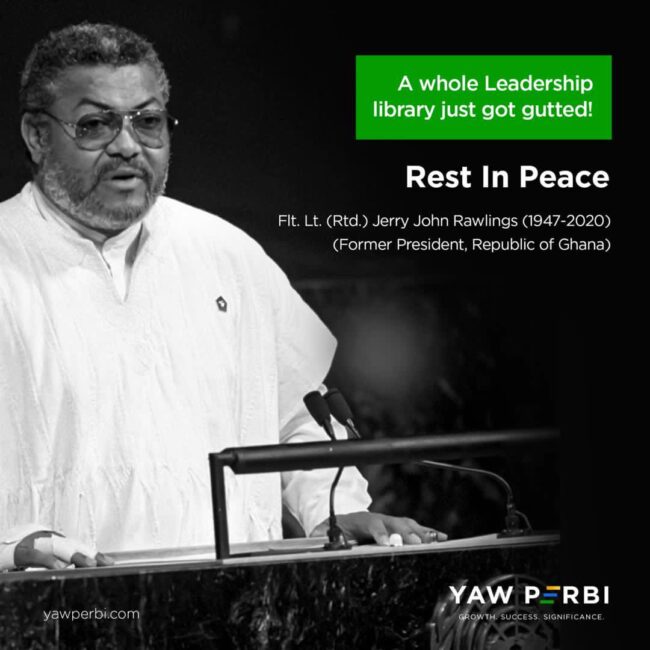
Oh, J J and the “Revolution”
While I hope Ghana’s former president Jerry John Rawlings does Rest In Peace, his passing has evoked many memories and a slew of strong sentiments–the good, the bad and the ugly. My father was Chief Accountant of the Social Security Bank at the time of J.J.’s ‘revolution.’ I have often touted my dad’s integrity. Here’s one of his recent reflections on how his integrity and God’s grace saved his skin during the days of the ‘revolution’, quite literally.
After the apparent unfinished business in 1979, JJ came back onto the public scene by ousting President Hilla Limann on 31st December, 1981. The mindset was people were corrupt; more corrupt than the public acknowledged, and far more widespread.
Soldiers entered our premises where we were staying, at a place called Pig Farm, in Accra. Word must have gone somewhere that our landlady Mame Boatema was hoarding cloth. Her trade was selling cloth at Makola, and there was a concept called “ hoarding”: some sellers used to keep some of the items for sale away from public view, partly in order to create shortages and hence sell what they had at higher prices, and partly, on a much lower scale, in order to pass them on to their favorite patrons and customers. It did not matter whether the things in your possession were legitimately acquired by you or not; if the quantity constituted more than a certain perceived number, you were branded as hoarding, and you suffered consequences. Consequences; various consequences, from outright seizure of the items, to sometimes seizure plus beatings.
On this evening, we had closed from the office and were home when all of a sudden soldiers entered our house. We were then occupying the lower floor of a two-storey building, Mame Boatema the wife of the landlord occupying the top floor. Apparently the soldiers had climbed up, done their search, found nothing and upon descending opened our front door without knocking and entered. Ma gave them a questioning look; I signaled to her to keep calm. They went to every room, found nothing of what they suspected, and left.
When they left, Mame Boatema went to the entrance of the house and shouted to all who were in hearing range, and somehow addressed to neighbours across the road whom she suspected may have sent false information to the soldiers that she was hoarding cloth, how disgraceful they had turned out to be, seeing that nothing untoward was found in the search.
That was just one domestic scenario. There were several in several places, many receiving beatings etc. Soldiers were all over the place, with an agenda they only knew, but mainly looking for “ enemies of the revolution”: namely people who were profiteering.
I was then chief accountant of the Bank ( SSB), one of the departments under my purview being the Stores. SSB was a very popular bank those days. It had been set up by the late Dr Appiah as a subsidiary of the national pension institution SSNIT, and was intended to help fill some identified gaps in the banking industry. Its department called Consumer Credit Department specifically set up to offer workers loans to buy consumables – fridges, freezers, cookers etc- was very popular with workers. The inflation in the country was not only in double digits but also the changes were so rapid that workers were no longer able to source loans easily to buy their needs. Members of staff felt very much appreciated by members of the public- and apparently also envied and hated by some – notably those who could not access the credit for one reason or the other.
Another aspect of SSB’s uniqueness was its opening of cocoa branches. These were new branches at cocoa farming and buying centres to assist cocoa farmers offer their cocoa sales receipts to the Bank for cash/credit. Prior to this, hard-working cocoa farmers after harvesting and selling their cocoa would only be given sales receipts which they had to hang on for very long periods of time and at the mercy of the traditional banks which were not many to start with, nor operating in thick rural areas. This made the Bank also very much appreciated by cocoa farmers.
In addition to this, warehousing finance whereby importers of goods, usually consumables, could access funds from the Bank usually to finance customs and clearing charges of imports by depositing the products in the Bank’s warehouse and have them released in bits based on how they were selling the items and paying the credit in installments was a very welcome initiative in banking.
The Bank’s warehouse was located at the North Industrial Area in Accra, while the Head Office where my office was was at Kokomlemle. On this occasion, I was told that soldiers had gone to the Warehouse and beaten one of the storekeepers. I wondered why, but almost immediately added “ If he did not do anything wrong, would they beat him? Maybe they asked to open the gates for them to see what was inside and he refused.” Little did I know that I was soon to eat back my own words later that night: being beaten before being heard.
People mingled around the frontage of the Bank wondering what was going on; it was near closing time, and I had also closed and joined the rest of the staff in wonder. Before long a military vehicle Pinz Gauer pulled up and with a couple of soldiers and policemen at the back drove up to the front of the Bank. While we were all at a loss as to what was up, I noticed I was pointed out and signaled to approach the vehicle. A soldier asked whether I would be able to answer some questions on the items in the warehouse and I confidently said “Yes.” I was asked to climb into the vehicle.
It was obvious it was most probable I was not going to drive home myself in my car that evening so I gave my car keys to one of the staff I identified and climbed in. We drove off, not knowing where they were taking me. We first went to a base near 37 Military Hospital, sat in the vehicle, wondering what was next. After a long time, and with dusk well settled and darkness in the atmosphere, we drove on, me little knowing where the destination was.
While going, some of the soldiers and policemen were exposed their beef as they expressed their disappointment with not being able to get some of the consumer items when they applied. I kept quiet, not being the manager in charge of that credit, but also being very much aware that no amount of defence would assuage their bitterness and anger.
Soon we were to turn into Burma Camp, and deeper into what I later got to know was Gondar Barracks. “Meat come! meat come!” were shouts that greeted us from soldiers at the camp, and apparently a couple or so other Pinz Guarers already parked ahead of us. “Meat,” as in reference to people who had been sent to the barracks who would be beaten. The prospect of beating civilians was being likened to enjoying some beef or similar juicy meat. I saw soldiers lifting their boots into the bodies of people, including their groins and any other part of the body they could reach with their legs.
Sooner or later it came to my turn. There was an office not far from the road where the vehicle had parked. When I was called, or rather signaled to enter the office, I descended from the vehicle and I heard one of them ask me to remove my eye glasses. Before I knew what was happening, two hefty slaps landed on my cheeks from behind me. I tried to make my way to the office, somehow convinced that there would be some respite there. It was like fighting unknown and unseen forces. While I tried hard to force my way to the office, I felt being restrained with some bearing. Eventually I made my way to the office.
An officer seated at a table asked of my designation . When I told him, it turned out that I was not one they were looking for. They asked me to go back to sit in the vehicle to be driven back. While waiting in the vehicle, some of the soldiers who had become somewhat apologetic said some people had even lost their lives so … apparently to console me that my fate could have been worse. When we departed to be sent to 37 area to find our way home, I opted to get off as soon as we exited the Burma Camp, and fortunately found a taxi that took me home to Pig Farm. Those were days of curfew: no one was expected to be on the streets from 6 pm to 6 am, later to be adjusted to 9 pm to 6 am.
A member of my staff Aggrey Fynn, himself a retired naval officer who was Stores Manager had also been sent to the barracks. I could only pray as to how he was going to be treated. Nursing pains in the cheeks the next few days and a red eye seemed a small price to pay for what was in store for the country, unknown to many, including even those who appeared to be “ in charge.”
Bank forgeries three years later and how some civilians were shot to death and my escape from it is another story altogether.
Reindorf B. Perbi
17 November, 2020
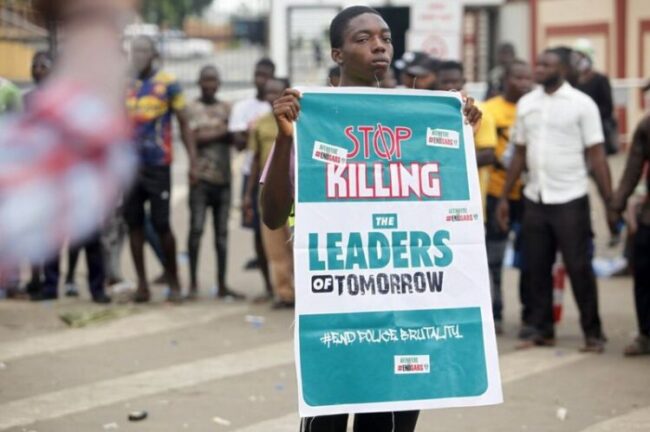
Youth Power!
Sixteen years ago I subtitled my ‘Youth Power!’ book, “unleashing the potential of the most powerful people on earth.” This pandemic year is giving us ample proof.

Nigerian youth at the #EndSARS protests. Youth are leaders of today; not just tomorrow. Photo credit: EPA
The recent George Floyd protests in the United States of America and around the world and current #EndSARS campaign in Nigeria against notorious police brutality have reignited my convictions about Youth Power!, well-documented in a 2004 book by that title. “This [#EndSARS] protest has been largely driven by young people,” I just heard from a CNN report.
YouthPower! is a revolutionary paradigm which seeks to start a fire in Young People for them to get their act together and do something significant with their lives…Now! For the last 16 years I have “been preoccupied with looking for evidence of Youth Power! all over the world and in all spheres of human endeavour since introducing that paradigm-shifting concept” in the mid 2,000s. Some other books that I have written to document such stories have included 15 Inspiring Young People and 15 Successful Global Businesses Young People Built, from Amazon to Time magazine.

The 2004 publication YouthPower! had a foreword by Dr. Mensa Otabil
Young people have a lot going for them; youth have a lot of power! First, the numbers–there are more young people on earth than ever before in the history of the world! And that is power. But wait, there’s more. Young people have influence, the ability to control people and situations–even holding governments to ransom. That is power. Young people have incredible talents and special abilities which peak at this time of their lives. We have seen how they have utilized their tech savviness and power of mobilization to literally get the government of Nigeria to dissolve the said Special Anti-Robbery Squad (SARS) they’re protesting against on 11th October 2020. Shall we talk about the sheer passion, strength and energy of youth? Throughout the history of the world, young people have touched, shaped and shaken the world in politics, academics, business, sports, arts/entertainment etc.
More often than not, though, all this power is stored in the form of potential. The rest of the book Youth Power! is full of keys to unlocking all this power in terms of principles, the proto principle, purpose, planning, preparation, people, places, practices, pruning puny behaviours and ultimately how all of this results in pay.
YOUTH POWER! IN AFRICA
In 2005, the year after Youth Power! was published and widely distributed in Ghana, I was on a break in South Africa, after failing my final year medical school exams in Surgery. A pilgrimage to Soweto inspired me to write “a historical and tourist account of how Youth Power! that broke the back of apartheid in South Africa.” That sequel is entitled “Youth Power! in Soweto.” For the whole year I served as a doctor-captain with the United Nations Operations in Cote d’Ivoire, it was my joy and pleasure to walk scores of Ivorian Young People at the Université de Bouaké through the paradigm and practice of Youth Power! They even run a contest, translating the book into French.
Today’s protests remind me of the eternal words of one of the young student protestors back in apartheid South Africa in the late 1970s. You can see those words becoming flesh in today’s young protestors also, from Washington to Lagos:
“Our parents are prepared to suffer under the white man’s rule [or any form of injustice and brutality for that matter]. They have been living for years under here laws and they have become immune to them. But we strongly refuse to swallow an education [or whatever] that is designed to make us slaves in the country of our birth.”
As I participate in hash tagging, donating and encouraging the strong network of The HuD Group (publishers of the original Youth Power!) in Nigeria and around the continent of Africa to keep pressing for positive change, I look forward to adding to the thick annals of Youth Power!, yet another sequel: the contemporary history of Youth Power! in Nigeria.
COVIDicTimes: Building to last in a pandemic
Everyone knows this is a hard time to live and even more so a jolly harder time to lead. A couple of thoughts and tools have been most helpful in my own leadership struggle to survive the pandemic and tussle to thrive beyond it.

Surviving and even thriving in the very place of crisis (Photo credit: accdocket.com)
This is worth repeating although people in my circles might be tired of hearing me sound like a broken record: a pandemic is a terrible thing to waste. It tends to be once-in-a-lifetime, nay, once every 100 or so years, for crying out loud! That notion of not squandering the opportunity in crises was most eloquently quipped in recent years by Stanford economist Paul Romer at a venture-capitalist meeting in November 2004 in California when he said, “A crisis is a terrible thing to waste.” According to the The New York Times Magazine, “he was referring to the increasing competition that America faces from rapidly rising education levels in other countries.” How much more COVID-19!
As a leadership practitioner in the global sphere, I’ve found myself in various groups discussing both gut reactions and measured responses to the pandemic. I have been particularly intrigued by the notion that COVID-19 is not just a passing blizzard but a long winter, even possibly a mini ice-age. I first heard it from my mentor of nearly 20 years who is currently the Finance Minister of the Republic of Ghana, Ken Ofori-Atta. In his Financial Times article that prayerfully ponders a restoration of GDPs to structural changes that need to happen from digitalization to debt issues, he prophesies: “This is not a passing blizzard, as a friend said; more like a long winter, even a mini ice age.”
Similar words were used by Andy Crouch et al. In summarizing their Leading Beyond the Blizzard: Why Every Organization is Now a Startup article, the above words from Ofori-Atta were echoed: “The novel coronavirus is not just something for leaders to “get through” for a few days or weeks. Instead, we need to treat COVID-19 as an economic and cultural blizzard, winter, and beginning of a “little ice age” — a once-in-a-lifetime change that is likely to affect our lives and organizations for years.”
So how do we live and lead (tactics) in the immediate to survive the vagaries of the current season yet be and do in a way that enables us to thrive beyond the pandemic (strategy). I’ve found the following thoughts and tools most helpful.
1. TRIAGE TO LIVE THROUGH THE PANDEMIC
As a Ghanaian, the month of May holds both the joys of May Day (workers’ holiday; equivalent of Lab(o)ur Day) and the pains of the May 9 stadium disaster that took the lives of 126 people in 2001. As all hands were called on deck that fateful day, ordinary folks drove to my medical school to implore medical students to come over and do whatever we could to help salvage endangered lives from the stampede that had ensued at the capital’s stadium. One of the necessary evils of medical practice is triaging in disaster. This is “the assignment of degrees of urgency to wounds or illnesses to decide the order of treatment of a large number of patients or casualties.” The word “triage” for grouping patients based on the severity of their injuries and the likelihood of their survival comes from the French word “trier” which means “to sort.” As a doctor I can tell you that usually it’s not the ones shouting the loudest that need the most urgent care but often the ones dying slowly in silence, perhaps haemorrhaging away.
What has this got to do with leading well in this COVID-19 pandemic? Well, while the mission of your organization wouldn’t change; your methods not only can, they should. The pandemic offers the kairos moment and clarity to triage, to sort through what must be given urgent care or otherwise. There are things that should become even more of a priority now in this pandemic; some that have emerged out of the blue and others that should be honoured as having served their purpose and honourably let go.
I have personally found the following ‘Strategy Triage Tool’ introduced in an April 30 Vision Synergy online workshop I was in most helpful. Hope you do too.
2. INNOVATE TO OUTLIVE THE PANDEMIC
“Necessity is the mother of invention,” so the old adage goes. And indeed, when the need for something becomes imperative, human beings are forced to find ways to get things done in a manner they wouldn’t have otherwise without this compelling force. I have witnessed more appropriate technological innovations on the African continent since the COVID-19 pandemic than I have my whole life!, everything from solar-powered soap-dispensing hand washing sinks through contact tracing mobile apps to pool testing of lab samples for coronaviruses. In the various organizations I’m a part of, I’ve seen many innovations things from cooking together in real time on Zoom to collaborative music videos of people continents apart.
 My excitement about crisis-birthed innovations was tampered though by wise words from my super smart fellow Fellow of the Africa Leadership Initiative (ALI), Bright Simons. Hear him: “Survival instincts do spur innovation during crises. But some crisis-spun innovations fail to position organisations well for the eventual recovery. For example, improved food canning and other preservation techniques became a mainstream strategy during World War II, but not the distributed “home canning” opportunities some, such as the Bernadin Bottle Cap Company, bet their fortunes on. The strong surge simply fizzled out in the post-war years. If an emergency forces new thinking that leads to new product and service lines, it may be worth your while to contemplate how you can “stretch out” the adaptive investments to sustain your edge into the recovery phase, with your primary focus on scaling when the constraints are less likely to lead to burnout.”
My excitement about crisis-birthed innovations was tampered though by wise words from my super smart fellow Fellow of the Africa Leadership Initiative (ALI), Bright Simons. Hear him: “Survival instincts do spur innovation during crises. But some crisis-spun innovations fail to position organisations well for the eventual recovery. For example, improved food canning and other preservation techniques became a mainstream strategy during World War II, but not the distributed “home canning” opportunities some, such as the Bernadin Bottle Cap Company, bet their fortunes on. The strong surge simply fizzled out in the post-war years. If an emergency forces new thinking that leads to new product and service lines, it may be worth your while to contemplate how you can “stretch out” the adaptive investments to sustain your edge into the recovery phase, with your primary focus on scaling when the constraints are less likely to lead to burnout.”
In demonstrating how we can “stretch out” the adaptive investments of COVID-19 so that our innovations can outlive the pandemic, Simons offers the illustration below.
The excellent COVID-19 analysis in this scenario planning PowerPoint by UC Berkeley professor Steven Weber and Arik Ben-Zvi (CEO of Breakwater Strategy) has also been a cherished gift. It is helpful that the duo have put a lot of thinking into various possible scenarios from total triumph to downright disaster, enabling leaders to conserve our energies to take care of the resulting so whats and then what’s for our own contexts and constituencies. Cross out America and the tool is pretty good for anywhere in the world that has been hit by COVID-19, which is everywhere.
FINALLY
So yes, any crisis is a terrible thing to waste, especially a pandemic of current proportions. In our bid to live and lead, may we do so well in order not only to merely survive the moment but to even outlast it. May posterity arise and salute the Covid-containing and Covid-conquering champions that we are, in the making.
COVIDic Times: A WAKE-UP CALL.
By
Dr. Owusu Banahene
At a time when for once leaders of a developing country cannot escape the infrastructure and systems they might’ve failed to build to benefit from someone else’s in the developed world, this presents a fine opportunity to experience the harsh reality for themselves and sit up, post COVID-19. A pandemic is a terrible thing to waste.

An already overstretched Ghanaian hospital pre-COVIDic times (Photo Credit: Prime News Ghana)
I would like to add my voice to concerns that some have have expressed recently about lessons that Ghana should draw from the coronavirus pandemic. This is crunch time for us. It is a wake-up call. There is no doubt that the health system in Ghana would not cope if we were to be faced with even a quarter of the cases that we have seen in countries like China, South Korea, Iran, Italy and Spain, to name but a few. Even Italy, with one of the best health systems in the world, cannot cope. The UK has adopted drastic measures because it recognises that its National Health System cannot handle the expected cases. Equally, the USA does not have enough test kits, ventilators, hospital beds, doctors, nurses etc. to manage the numbers expected.
Ghana’s health system is nowhere close to these countries. Even under normal circumstances, our public hospitals have low capacity—we struggle with shortage of beds, with many patients sleeping on the floor or in corridors. We cannot even deal with Malaria nor vaccines without going cup in hand to the Global Fund and GAVI. Yet, our politicians and governments over the decades have lived and continue to live in largesse. For example, for a small, debt-ridden, low middle income country like Ghana, we have well over 100 ministers, most of whom live in expensive houses in posh neighborhoods provided by the state and drive expensive cars (so-called V8s). Their favourite car, the Land Cruiser, costs about USD 135,000 to buy new. All of these ministers have two or more cars provided by the state.
It is not just ministers. I have seen parliamentary delegations travelling abroad, sometimes about 15 of them. They travel in Business Class. When you engage them in conversation, they tell you about some of their other trips to places like South Africa, the UK, Kenya etc. One gets the impression that they travel frequently and regularly. They get significant per diems on these trips and stay in expensive 4-star and 5-star hotels. I recall one such delegation on a trip to the UK, made up of MPs from the ruling party at the time and the opposition, not to mention their escorts. Most were in First Class, whilst the rest (the escorts) were in Business. Upon arrival at London Heathrow, there was a fleet of Mercedes cars on the tarmac from the Ghana High Commission to meet and collect them. Of course they did not go through immigration and customs like the rest of us did.
Add to the above the corruption and kick-backs from contracts and other rent-seeking activities and you get an idea of the scale of the loot and largesse. In consequence, infrastructure projects such as airports, roads, hospitals, electricity etc. cost twice or more what they should, to say nothing of procurement of routine and regular supplies across the country. These monies, amounting to hundreds of millions of US dollars, end up in the pockets of the politicians, public servants and their cronies.
I could go on, but now, consider what we could have done with such monies at a time like this with COVID-19. Consider the test kits we could have bought, the hospitals we could have built across the country, the isolation wards, the ventilators we could have procured, the number of doctors, nurses and other health personnel we could have trained and retained in Ghana—with all the extravagant spending, waste and corruption of the past three or four decades! We could have been like Singapore or South Korea but, no, our politicians, public servants and their cronies have chopped and wasted the money—and continue to do so.
I hope and pray that COVID-19 would be a wake-up call for all of us. I wish some smart Alec would identify and do an inventory of all the properties and monies, including those stashed abroad, of the politicians and public servants and ask them to account for them. Those that cannot be legitimately accounted for should be confiscated and auctioned, with those monies going into a special fund for development. It is crunch time. It is time for us to wake up!
_______________
Church in a Century of COVIDic Captivity | Epistle 3
COVID-19 TESTS: WILL THE CHURCH PASS?
By Thomas R. Bosomtwe
The Coronavirus pandemic has changed everything; including ‘church.’ This is the third in a series of random thoughts about the Church at a time when COVID-19 threatens to hold us all to ransom. Guest writer T.R. Bosomtwe examines the suspension of church services in Ghana and matters arising: a theological reflection.
INTRODUCTION
On Sunday, 15th March, 2020, I listened to the president of Ghana outline the measures government has rolled out to curb the spread of the corona virus in Ghana. As part of the measures the president has directed that all church services be suspended for the next four weeks.
The directive, as would be expected, has been received with mixed reactions. On one hand, there are those who are of the view that it is discriminatory in the sense that if church services and other religious gatherings are being suspended, then activities at the night clubs, drinking bars, restaurants, supermarkets and lorry stations should all be suspended. In fact the Bishops’ Conference has raised questions about why they were not consulted on the matter and why night clubs and chop bars have been excluded.
On the other hand, there are others who have lauded the President for this directive. While they are not too happy that church services will not hold for the next four weeks, they believe that it is one of our surest ways of preventing any further spread of COVID-19. Many churches have issued memos to their congregants and adherents asking them to suspend all church activities until further notice.
While both sides have legitimate and very strong arguments to support their positions, I hold a neutral view on the suspension of church services. Among other things, I believe there is a lot more we have to do to curtail the spread of COVID-19. The bottom line is that individuals must seriously take personal responsibility for their own safety.
The suspension of church services however, is a test for the body of Christ. It is a test for the church as a corporate body, and it is a test for individual Christians This directive, occasioned by COVID-19, will reveal how robust or otherwise our set-ups are. The way we do church in this country will definitely not be the same during and after this pandemic. Indeed, COVID-19 is testing many of the things we believe and many of the things we have been doing over the years. A few are discussed below.
1. TEST OF PRAXIS
First of all, the suspension of church services will test how we have been ‘doing’ church. The basic disciplines of the faith including personal and family devotion, personal prayer life, fellowship, commitment to holiness and evangelism we have cultivated are being tested. For the next 4 weeks, members will not be coming to church to listen to sermons. The question is will our church members survive? It depends on whether we have been ‘discipling’ our members, equipping them to live and serve Christ or we have reduced them to pastor-dependent Christians who depend on the pastor for almost everything. In the next four weeks the former will survive but the latter will tottle.
2. TEST OF LOYALTY
Secondly, the suspension will test the loyalty of church members. There are many Christians whose loyalty to Christ and to their local churches will be tested in the next four weeks. Some church members may see this suspension as a holiday and behave like school children who have been asked to go home because it rained. Others will really miss church! So, will you send your offering and tithe through ‘momo’ to church on Sunday? Would you want to know what your local church will do on Sunday and how you can support it?
3. TEST OF CITIZENSHIP
Thirdly, the suspension will test our practice of Christianity in relation to state authority. You do not need to be a prophet to predict that some ‘super spiritual’ churches will defy the directive of the President and hold their ‘regular’ church service on Sunday. Some are of the theological persuasion that it is an attack on their right to worship…and that…”they will obey God rather than man…” the real question is, how should the church relate to civil authority?
4. TEST OF SUBSTANCE
Fourthly, the suspension will make us know that people are more important than buildings. Many churches have invested huge sums of money into cathedrals, parishes, and auditoriums. Sometimes the very people who constitute the church are neglected, unattended to all because the church is building. Well, on Sunday, pastors will not have their regular members to preach to. What will become of the expensive chairs, supersonic gadgets and fittings? This is the time we need our members the most, but if we have not prioritized their needs and interests, then this time, they too will ‘show us.’
5. TEST OF TECH-READINESS
Last but not least, the suspension of church services for the next four weeks will test our preparedness for and how abreast we are with technology. I have heard with excitement some of the measures some churches are putting in place to reach their members on Sundays and all through the period when the suspension is in force; online streaming, facebook live, YouTube, radio broadcasts and the like. I also know some church leaders have no idea what these things are let alone what they are used for. It is time to embrace technology and use it to reach the masses for Christ.
CONCLUSION
Let me conclude by saying that God has a very interesting way of getting man’s attention. Sometimes “God allows the hurricanes of life to shake us into seeing that in a world of gigantic forces, we live by His permission, not by OUR good management.” Some things happen so that man will know that “there is a God in heaven who rules in the affairs of men.” By all means, let us observe the preventive protocols, but let us also pray for God’s intervention and while we are at it, let us learn the lessons that COVID-19 is bringing to all, especially the body of Christ.
________________
The author is a student of Theology and Associate Pastor with the Assemblies of God, Ghana (Holy Ghost Revival Centre, Accra). The initial version of this write-up was first published on his FaceBook wall on March 17, 2020.



